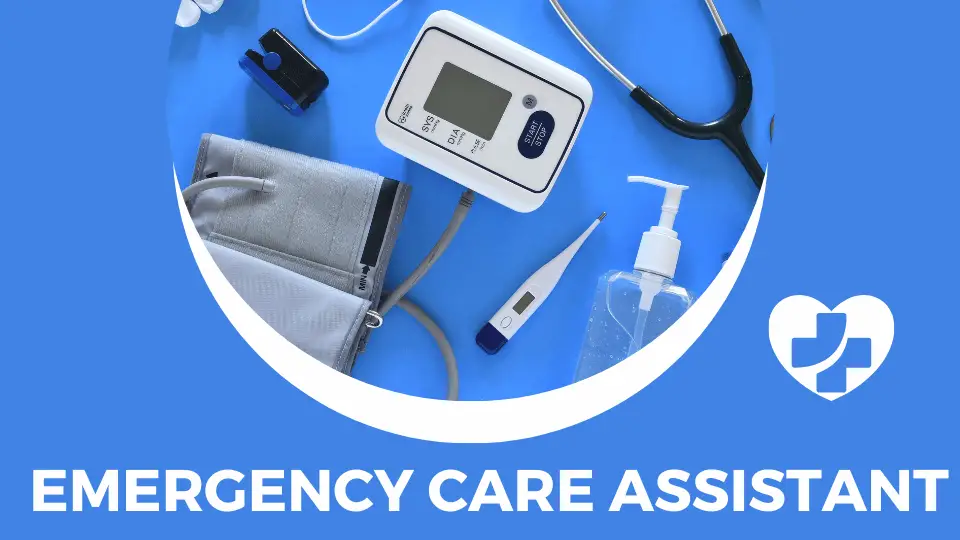Introduction
Emergency medical services (EMS) play a crucial role in the provision of medical care to patients during emergencies. Among the various personnel involved in EMS, the emergency care assistant (ECA) plays a pivotal role in providing efficient and effective pre-hospital care. In this article, we explore the role of an ECA in EMS, its responsibilities, and the skills required to excel in this profession.
What is an Emergency Care Assistant?
An ECA is a healthcare professional who works alongside paramedics and ambulance technicians to provide pre-hospital care to patients. They provide essential support services such as patient assessment, monitoring vital signs, administering medications, and assisting with medical procedures.
Responsibilities of an ECA
The responsibilities of an ECA include responding to emergency calls, assessing patients’ conditions, and providing appropriate treatment. They are also responsible for transporting patients to hospitals or other healthcare facilities. Other duties include:
- Administering medications, such as oxygen and pain relief medication
- Performing basic medical procedures, such as wound dressing and splinting fractures
- Monitoring vital signs, such as heart rate, blood pressure, and oxygen saturation
- Communicating with other healthcare professionals to provide the best possible care
- Maintaining accurate patient records
- Cleaning and maintaining equipment and ambulances
Skills required to be an ECA
To excel in this profession, an ECA should have excellent communication and interpersonal skills. They should be able to communicate effectively with patients, family members, and other healthcare professionals. They should also be able to work well under pressure and remain calm in stressful situations.
An ECA should have strong problem-solving skills and be able to think quickly on their feet. They should be able to make critical decisions in a fast-paced and dynamic environment. Additionally, they should have strong attention to detail and be able to maintain accurate patient records.
Training and Certification
To become an ECA, one must complete the appropriate training and certification. The training typically includes classroom instruction and practical experience. The course duration varies from country to country but usually ranges from several weeks to a few months.
After completing the training, ECAs must obtain the necessary certification to practice. In many countries, certification is granted by the regulatory authority responsible for EMS. To maintain their certification, ECAs must complete ongoing education and training.
Career Opportunities
Emergency Care Assistants (ECAs) have a wide range of career opportunities available to them. They can work in ambulance services, hospitals, private clinics, or in specialized areas such as search and rescue teams or air ambulance services. With additional training and experience, ECAs can advance their careers and become paramedics or other healthcare professionals. This profession is highly rewarding and provides opportunities to make a positive impact on people’s lives during times of crisis.
FAQs
What is the role of an Emergency Care Assistant (ECA)?
ECAs work alongside paramedics and ambulance technicians to provide pre-hospital care to patients. They are responsible for responding to emergency calls, assessing patients' conditions, and providing appropriate treatment.
How long does it take to become an ECA?
The duration of training varies from country to country, but typically, it takes several weeks to a few months to complete the necessary training to become an ECA. After completing the training, ECAs must obtain the necessary certification to practice.
What are the typical work hours for an ECA?
ECAs work on a shift basis, which can include day, evening, and night shifts. They may also work on weekends and public holidays. The exact working hours can vary depending on the employer and the location.
What kind of equipment do ECAs use?
ECAs use a variety of medical equipment, such as defibrillators, oxygen tanks, and medical bags. They also use communication devices such as radios and mobile phones to communicate with their team and with hospital staff.
Conclusion
ECAs play a vital role in EMS, providing essential support services to patients during emergencies. They are responsible for assessing patients’ conditions, providing appropriate treatment, and transporting patients to healthcare facilities. To excel in this profession, ECAs must have excellent communication and problem-solving skills, as well as the ability to work well under pressure. With the appropriate training and certification, ECAs can pursue rewarding careers in healthcare.

